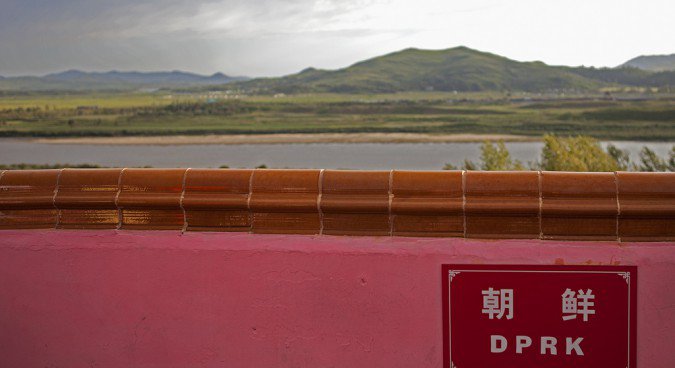The head of the Comprehensive Test Ban Treaty Organization Lassina Zerbo stated:”Our International Monitoring System detected an unusual seismic event in the Korean Peninsula at latitude 41.27 longitude 129.10.” The location on the map places the epicenter at North Korea’s Pyunggye-ri testing site in its northeastern mountains, where all of its nuclear tests have been conducted.”
North Korea announced today that it had conducted a hydrogen bomb test. If confirmed this would put Pyongyang closer to improving its still-limited nuclear arsenal. This is not good news for anyone, or any country.
While the right to self defence is an absolute and other nations have nuclear weapons thus using simple logic North Korea also holds the right to have them, it beholds all those involved in nuclear weapons to rethink such stands. Using higher reason, nuclear warfare is untenable. What is needed is to start right now getting rid of anything nuclear outside the realm of medicine.
For instance nuclear power for energy creation is vastly polluting and life threatening and certainly not ‘clean energy ‘ as promoted by the industry and its defenders. It is also intimately tied to the nuclear weapons industry – no nuclear power stations, no nuclear weapons making materials – because outside of those nuclear power stations such materials do not exist. They are man-made! What man makes he-she can unmake.
The local-to-the-Korean-peninsular and its divide problem is re-unification; to have one Korea and not a North Korea and a South Korea. While there are local dissenters to such re-unification, largely the Korean people’s would welcome unification.
Let us recall the fall of the Berlin Wall, a milestone event that heralded greater European unity and presaged the fall of the rule of totalitarian states and hardline rule by excessive policing of public life funded by governments insisting on holding onto power by any means, including direct physical violence, and psychological violence as seen in lying propaganda against opposing ideologies.
Opening up the borders and a free-flow of people can be part of the process to bring down the false barriers that hold entire people’s apart. Such is The Greater Tumen Initiative (GTI), subtitled, a chance to re-engage the Korean Peninsula as detailed by Georgy Toloraya and Lyubov Yakovleva who wrote an article for NK News (January 5th, 2016). From the Russian side this is seen as the only example of an intergovernmental mechanism for economic cooperation in Northeast Asia that they note grows in significance in the context of ‘Russia’s pivot to Asia’.
This is stated as an endeavour to ‘develop the Far East’ but according to Russian commentators in Moscow, it has not yet been fully integrated into the context of Russia’s policy on the Korean Peninsula. Initiated by the United Nations Development Programme (UNDP) in 1991 as a regional cooperation programme, it continued existence on paper until 2005 when the programme was re-branded, becoming the present GTI.
“Originally, it embraced five countries – Russia, China, Mongolia, South Korea and North Korea – but in 2009 the DPRK withdrew [apparently] after its hopes of receiving financial assistance failed to materialize. Another state interested in the initiative is Japan, which attends its meetings as an observer. Nowadays the GTI focuses on transportation, trade and investment, energy and tourism as its main priorities and carries out some additional environmental projects,” says the article.
For greater detail see: https://www.nknews.org/2016/01/the-greater-tumen-initiative-a-chance-to-reengage-the-korean-peninsula/
The article concluding note regarding North Korean participation in multilateral mechanisms, including the GTI, sees the ability of authorities to proceed with a genuine opening-up policy is limited by their fear of absorption by their more powerful neighbour South Korea. Indeed, such a policy does carry with it a great risk of regime collapse. Cooperation with GTI member countries as guarantors could help overcome this concern and contribute to mutual prosperity as well as peace and stability in the region.
The authors say that working via the GTI, Russia would have a better chance of changing the current North Korean position on the issue and mitigating its confrontations with other countries.
Whether this Russian idea is the way to go on the international front or another proposal likewise seeking peaceful resolution forwarded by another nation or collective of nations is not at issue – either will do – what is wanted is co-operation by good intentioned countries and the inclusion of North Korea in the arrangements. Then further development of nuclear weapons can cease in North Korea and the Far East can focus on regional co-operation for its better future instead of negatively preparing for war.






